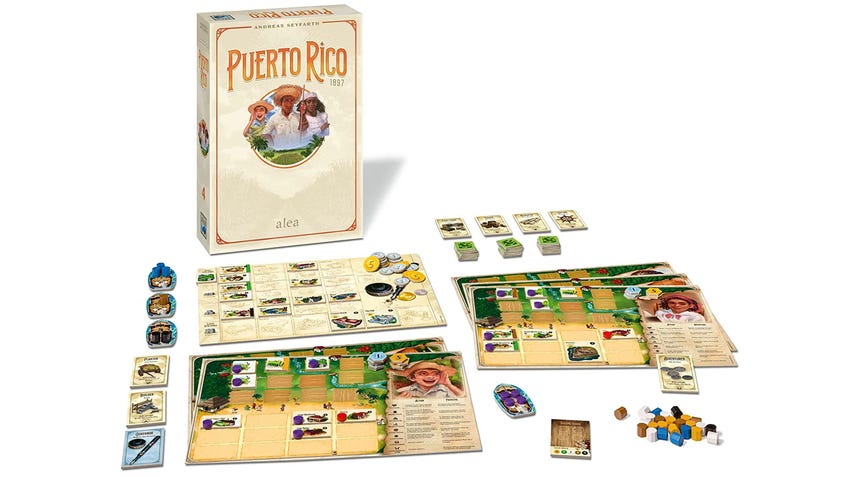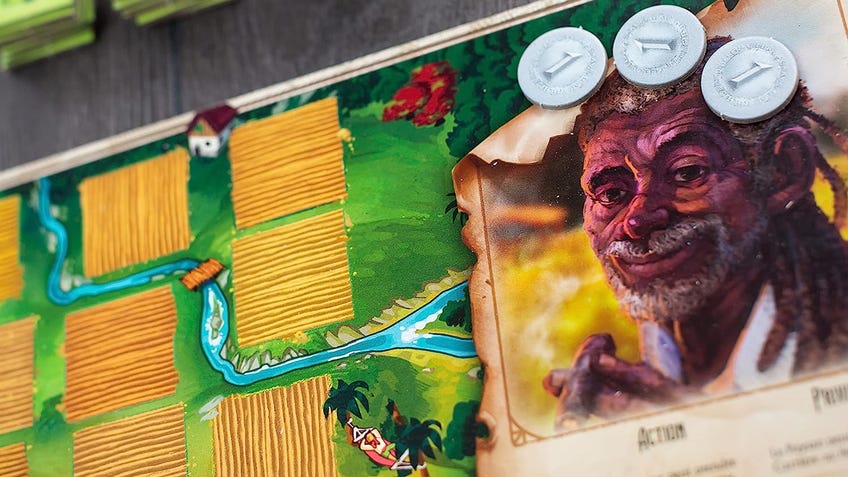Puerto Rico 1897 cultural consultant rejects anti-colonialist board game remake as “not real inclusion”
“Our industry has a long way to go.”
The cultural consultant behind 2022’s anti-colonialised remake of board game Puerto Rico has rejected the title as “not real inclusion”.
The original Puerto Rico was released in 2002 and has players taking up the roles of Spanish colonial governors who make a profit from selling the crops grown on the plantations they run. From the 15th to the 19th century, Puerto Rico was a Spanish colony, with the arrival of Christopher Columbus leading to the country falling under the colonialist rule of the Spanish Empire.
The colonisation of Puerto Rico resulted in many indigenous people suffering from being forced off their land by the Spanish colonisers, as well as being forced into slave labour and dying from infectious diseases spread by the invading Europeans. Later on in the 16th century, the Spanish colonisers began bringing enslaved African people to the country in order to work on various plantations that the colonists profited from. Slavery remained legal in Puerto Rico until an uprising in the late 19th century led to an independence movement abolishing the practice, with the country eventually breaking away from the Spanish Empire becoming part of the US by the beginning of the 20th century.
Puerto Rico takes place during the era of the Spanish colonisers, with players working as slave and plantation owners in order to grow their profits, construct new buildings and grow their shipping trade - with the title including brown wooden discs representing the workers, who are named ‘colonists’ rather than slaves. The original game was released with zero commentary or engagement with the obvious racial issues surrounding that era of the country’s history, opting to ignore the moral problems posed by its concept in favour of its empire-building gameplay.
Puerto Rico 1897 is a remake of the original Puerto Rico that has players taking the role of members of the newly independent country, now freed from the shackles of the Spanish Empire. The game sees players becoming Puerto Rican farmers who are trying to establish their own successful businesses by growing and selling produce, as well as building parts of the city’s infrastructure. Players are still undertaking similar actions to the original version of Puerto Rico, but the remake reframes the historical context of the series to focus away from the Spanish colonisers and towards the people of Puerto Rico.
Jason Perez, a Puerto Rican board game critic and creator who runs the YouTube channel Shelf Stories, worked as a cultural consultant on Puerto Rico 1897. Earlier this week, Perez published a video titled “I Created the Theme of Puerto Rico 1897. Now, I Reject It” on their YouTube channel, discussing their experiences working on the board game. In a reply to their initial post on X which featured the video, Perez explained that during the making of Puerto Rico 1897“a lot of stuff went on that I didn’t like, and I want to warn other creators about those pit traps to which we can blind ourselves because of our enthusiasm. However, the responsibility here is ultimately on my own. I will learn and move forward.”

Perez continued in another reply that “ultimately, it’s about inclusion. Whatever PR1897 is right now, it’s not real inclusion. [...] Any discussion or new knowledge my video can promote about real inclusion will be worth it.”
Perez later took down the video, releasing an additional statement on X addressing the video and people’s responses to it. Perez explained that though the creator was “glad people watched it and mostly showed support,” they felt the need to take the video down due to “some of the misinterpretations”.
“My feelings have not changed. I created the theme of Puerto Rico 1897, and now I reject it,” said Perez, “I wanted to go beyond a simple fix for the old theme’s PR problem (pun intended). I was animated by a broader vision of inclusion that reached out to existing gamers, new gamers and my own Puerto Rican heritage. However, that turned out not to be the approach.”
Perez continued by stating that “real inclusion means uplifting creators, not just their creations. In this case, creator and creation have been severed in a way that I never wanted.” The cultural consultant concluded that “although I have heard fellow gamers refer to the theme as ‘fixed’, I invite folks to reflect on what that really means [...] I feel our industry still has a long way to go.”

